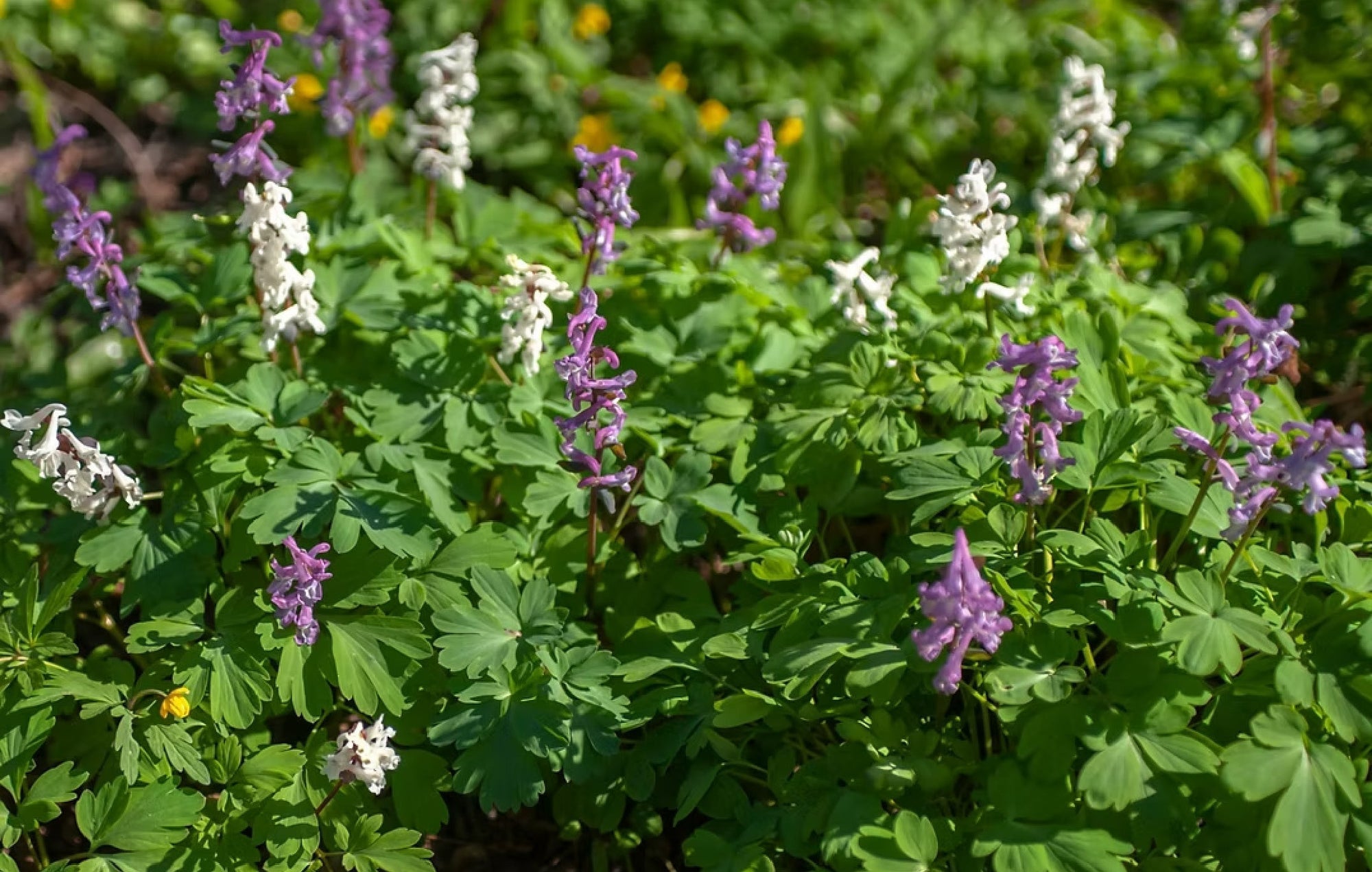

Corydalis Plant: History, Uses, and Modern Herbal Benefits
Corydalis is a fascinating flowering plant that has captured the interest of herbalists for centuries. With over 450 known species — about 330 native to China and Tibet — Corydalis is prized for its vibrant flowers and its long history of traditional use for natural pain relief, relaxation, and digestive wellness.
Botanical Origins and History
Corydalis belongs to the Papaveraceae family, making it a botanical cousin to poppies and bleeding hearts. While species like Corydalis cava first intrigued early European apothecaries for their alkaloids, the true diversity and herbal potential of Corydalis were revealed through exploration in China. In traditional Chinese medicine, Corydalis extracts have been used for centuries to help ease pain and support overall balance in the body (NCBI).
Fun fact: The name “Corydalis” comes from the Greek word korydalis, meaning “quail” — a nod to the plant’s quirky, bird-like seed pods.
Natural Pain Relief
One of Corydalis’ most well-known uses is for its analgesic (pain-relieving) qualities. Compounds in Corydalis, such as tetrahydropalmatine (THP), have been shown to affect certain pathways in the brain that process pain, potentially helping to raise the body’s pain threshold (SAGE Journals).
In traditional herbal practice, Corydalis has been used to help ease headaches, menstrual cramps, joint discomfort, and general muscle aches.
Cognitive Support and Mental Clarity
Emerging research suggests Corydalis could offer benefits for cognitive well-being. Some compounds found in Corydalis may inhibit certain enzymes that impact memory and brain health (ScienceDirect). While research is ongoing, these effects make Corydalis an intriguing botanical for holistic mental support.
Digestive Health Benefits
Corydalis has also shown promise for supporting healthy digestion. It has traditionally been used to help protect the stomach lining and reduce irritation from ulcers (PeaceHealth). Its natural anti-inflammatory properties can help soothe the gut and encourage overall digestive balance.
Relaxation and Sleep Support
In addition to its pain and digestive benefits, Corydalis is known for its calming effects. Compounds in the herb may help soothe the central nervous system, promoting relaxation and better sleep quality (PMC). Traditionally, Corydalis has been used to help calm anxiety and support restful sleep, making it a versatile addition to modern herbal blends.
How We Use Corydalis at Feelz
At Feelz, we believe wellness should feel intuitive and effortless. That’s why our gummies begin with Kanna, a powerful botanical known for boosting mood and mental clarity. To deepen the experience, we layer in complementary ingredients like Corydalis, which is celebrated for its gentle, natural support in easing tension and promoting relaxation.
Each batch is carefully crafted to help you find your flow, whether you're staying centered through a busy day or winding down into a peaceful evening. It has all the benefits, none of the bitterness — just delicious, feel-good support in every bite.
Frequently Asked Questions
Is Corydalis safe to take every day?
Corydalis is generally well-tolerated when responsibly sourced and formulated. Always talk to your physician if you have questions about daily use.
Does Corydalis cause drowsiness?
Corydalis has calming properties that may help promote better sleep. Many people find it soothing without feeling overly sedated.
Is Corydalis psychoactive?
No. Corydalis is not psychedelic and does not produce a “high.”
How does Corydalis work for pain?
Corydalis contains compounds like THP that interact with the brain’s pain pathways, helping to naturally reduce the perception of pain.
Can Corydalis support digestion?
Some research suggests it may help protect the stomach lining and support gut comfort.





